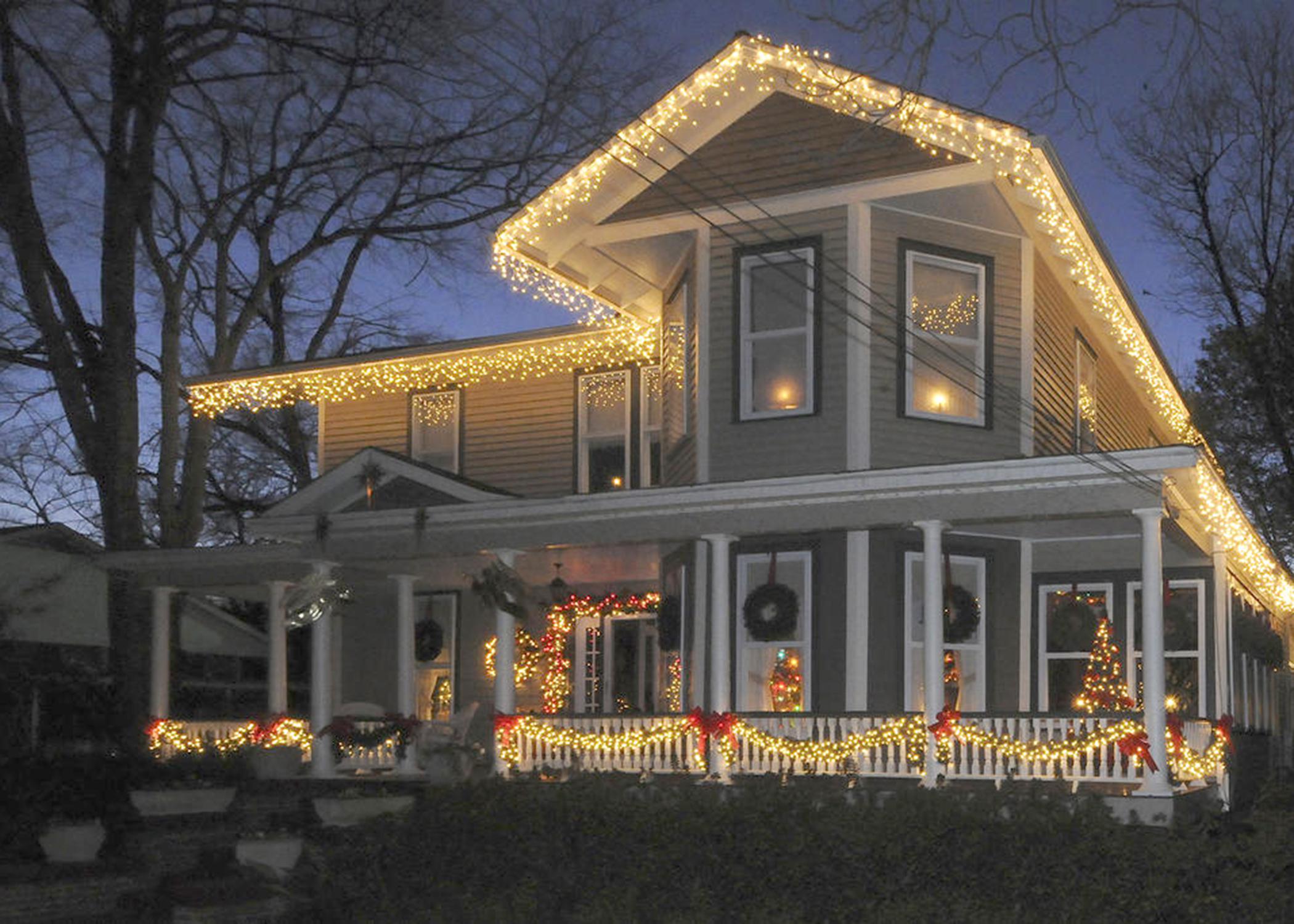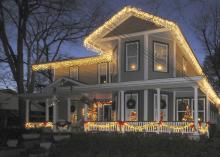Information Possibly Outdated
The information presented on this page was originally released on November 19, 2014. It may not be outdated, but please search our site for more current information. If you plan to quote or reference this information in a publication, please check with the Extension specialist or author before proceeding.
Handle with care when hanging holiday lights
MISSISSIPPI STATE -- Holiday lights brighten the inside and outside of homes during this season, but these decorations should be treated with caution.
Mississippi State University experts have some safety tips every homeowner should know before hanging decorative lights this year. Homeowners should make sure lights intended for indoor use have been approved by a certified laboratory. Outdoor lights should be labeled for outdoor use only.
Ted Gordon, risk management/loss control manager for the MSU North Mississippi Research and Extension Center in Verona, said to disconnect all lighting from the electrical outlet every night.
“Never leave lights on when the home, business or other dwelling is vacant for any period of time, because lights can overheat,” Gordon said. “As a rule, if you’re at home and have them on from early evening to around 10 or 11 p.m., you shouldn’t have a problem. The same is true for outdoor lighting.”
Outlets are another concern when using decorative holiday lights.
“If an outlet has a fault in the wiring, it can carry through to the lights,” Gordon said. “Be careful to not overload an outlet by using a splitter and plugging multiple strings of lights into it. A power strip is acceptable if you only use the outlets that are built into the strip. Make sure that the strip isn’t overloaded.”
Gordon recommended inspecting light strands before putting them on the tree.
“Plug them into an outlet,” Gordon said. “Check for burned out bulbs, and look at the wiring for scrapes, frays and shorts.”
Gordon said cut live trees should be watered daily.
“When purchasing a live tree, be sure to get one that has supple branches and needles,” Gordon said. “Do not buy one that has dry needles and no fresh scent.”
Dwight Dempsey, an electrical supervisor at MSU, cautioned holiday light enthusiasts to watch for evidence of overloaded outlets.
“One sign to look for when an outlet has become overloaded are breaker trips, which can cause the electricity to shut off,” Dempsey said. “Other signs include the dimming of lights or the cord getting hot.”
Dempsey said people should take extra precautions if small children are in the home.
“Parents should keep the light cords put away and hidden,” Dempsey said. “If children see the cords, they may be tempted to bite them or get tangled within them.”




